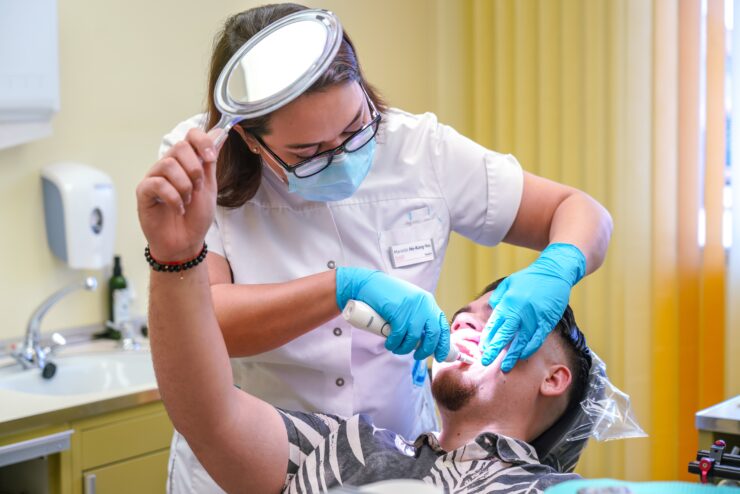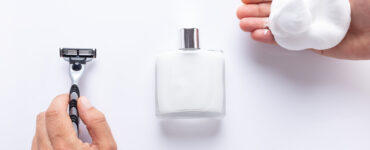Experiencing teeth grinding at night, known as bruxism, can severely impact both your oral health and the quality of your sleep. It’s a common problem that often goes unnoticed until dental issues arise. Understanding the impact of bruxism on both your dental health and overall well-being is the first step towards finding effective solutions. In this article, we’ll explore five effective strategies to help you stop grinding your teeth at night, safeguard your teeth, and enjoy restful sleep. By delving into these strategies, we aim to equip you with comprehensive knowledge and actionable steps to combat teeth grinding, ensuring a healthier, happier tomorrow.
Stress Reduction Techniques
Stress is a formidable adversary in bruxism, triggering teeth grinding and intensifying the condition. Stress reduction techniques offer a multi-faceted approach. Mindfulness meditation, for instance, focuses on the present, calming racing thoughts and promoting relaxation. Yoga combines physical postures with breathing exercises, releasing muscle tension and soothing the nervous system. Deep breathing exercises provide quick stress relief throughout the day. The key to their efficacy is addressing root stress causes. Chronic stress often originates from work, relationships, or finances. These techniques should be integrated into your daily routine to build resilience and reduce the immediate risk of teeth grinding. Stress reduction practices aren’t one-size-fits-all. Experiment with different methods to find what suits you. The goal is consistency; these techniques must become routine, reducing the chance of teeth grinding and fostering inner peace and emotional balance for a better quality of life.
Dental Splints Or Night Guards
Consulting a dentist is essential if you suspect bruxism. Dentists can create custom dental splints or night guards tailored to your mouth. These devices serve as protective barriers between your upper and lower teeth, significantly reducing the impact of grinding. They alleviate discomfort and pain associated with bruxism. Regular dental check-ups are crucial to ensure the ongoing effectiveness and fit of these appliances, providing you with lasting protection and peace of mind. Custom-designed guards not only shield your teeth but also encourage improved jaw alignment, further reducing the adverse impact of bruxism on your oral health. They act as a buffer, absorbing the forces generated during grinding, thereby safeguarding your teeth from further damage. Moreover, wearing these professionally designed guards can help break the cycle of bruxism by interrupting the habit of teeth grinding. As time passes, this can lead to enhanced oral health and an improved overall quality of life. Dental splints or night guards are a vital investment in your dental well-being, ensuring you wake up with a refreshed smile and free from the pain and discomfort associated with bruxism.
Caffeine And Alcohol Moderation
Moderating caffeine and alcohol intake, especially before bedtime, aids in reducing teeth grinding. Opt for caffeine-free herbal teas or warm milk in the evening. The impact extends beyond sleep, positively affecting your overall health. Excessive caffeine can lead to restlessness and heightened alertness, interfering with peaceful sleep. By adjusting your habits related to caffeine and alcohol, you can reduce bruxism incidents and promote restful sleep. This change in routine has a profound impact on your sleep quality, oral health, and overall well-being. It aligns with the goal of achieving a relaxed and undisturbed night’s sleep, free from the discomfort and damage caused by teeth grinding, ultimately benefiting your physical, emotional, dental, mental, and spiritual wellness. Prioritizing these lifestyle changes is key to addressing bruxism effectively and comprehensively. Your commitment to these adjustments will lead to improved sleep and a healthier, more balanced life.
Relaxing Bedtime Routine
A well-structured bedtime routine is a potent tool in preventing teeth grinding. Engaging in activities such as reading, enjoying a warm bath, or listening to calming music act as signals to your body that it’s time to relax. This approach signals to your subconscious mind that relaxation precedes sleep, reducing the likelihood of teeth grinding episodes. Incorporating relaxation techniques into your routine, such as progressive muscle relaxation or aromatherapy, further enhances its effectiveness. Consistency in your bedtime routine is key; it trains your body to transition seamlessly into sleep mode. By making relaxation techniques a nightly practice, you create a tranquil sleep environment conducive to better rest and a relaxed jaw. Over time, this habitual relaxation serves as a powerful deterrent to teeth grinding, promoting a more peaceful night’s sleep and safeguarding your oral health. Prioritizing relaxation in your bedtime routine improves your sleep and enhances your overall quality of life, minimizing the adverse effects of bruxism.
Professional Dental Evaluation
A professional dental evaluation is crucial for managing teeth grinding or bruxism. Dentists excel at diagnosing and treating this condition, ensuring your oral health remains intact. In the course of your dental assessment, your dentist will carefully inspect your teeth for indications of damage resulting from bruxism, like flattened or chipped surfaces. A common treatment advised by dentists for bruxism is the use of custom-made dental splints or night guards, which significantly reduce grinding’s impact and prevent further harm. Regular follow-ups with your dentist are essential to maintain the effectiveness of these devices. In conclusion, a professional dental evaluation and treatment are vital for managing bruxism effectively. Dentists excel at diagnosing the condition, offering personalized solutions, and providing ongoing support to safeguard your oral health. Collaborating with a dental professional empowers you to proactively combat bruxism, preserve your teeth, and enjoy a more peaceful night’s sleep.




